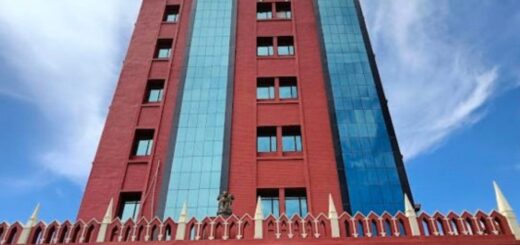The Supreme Court stated that a High Court cannot make observations about a third party who is not present in the case.

The Supreme Court has shown its disagreement with a comment made by a Single Judge of the Madras High Court, Madurai Bench, in a case about cheating. The Court was reviewing a Criminal Appeal against the High Court’s decision to reject a request to dismiss the chargesheet. The two-Judge Bench, consisting of Justice Ahsanuddin Amanullah and Justice K.V. Viswanathan, stated, “After examining the case on its merits, we need to address a concerning point. The parties involved in the High Court were: (i) the appellants (original petitioners); (ii) the State; and (iii) the complainant. Given this situation, it was clearly unnecessary for the High Court to make the following observation in the contested Judgment.”
AOR G. Balaji represented the Appellants, while Senior AAG Amit Anand Tiwari represented the Respondents. According to the prosecution, the Complainant claimed she was in a relationship with the Appellants’ son and engaged in physical relations based on his promise to marry her. She alleged that during one visit to meet the Appellants, they accepted her as a potential daughter-in-law, but later, the son told her that his parents had arranged his marriage to someone else.
The Appellants’ counsel argued that the Complaint does not state that the parents encouraged or misled the Complainant into believing they would arrange her marriage to their son, which was the reason for her physical relationship with him. They also noted that there was no claim that the Appellants pressured their son to marry another girl or that they were aware of his relationship with the Complainant. Conversely, the Complainant’s counsel insisted that the Appellants’ involvement was significant, as their assurance led the Complainant to agree to the physical relationship. The senior counsel for the State argued that the Appellants should not be held liable, especially not criminally under Sections 417 and 109 of the Indian Penal Code (IPC).
The Apex Court noted that based on the complaint, there was no illegal or criminal behavior by the appellants. The court found no evidence of any offense under the IPC. Therefore, it could not conclude that the appellants committed an offense under Section 415 of the IPC. The Court also considered the complainant’s age and education, stating that the appellants’ actions did not cause the complainant to form a close relationship with their son. The main accusations were directed at the son, who had previously filed a petition that he later withdrew. The Court emphasized that allowing a trial against the appellants would misuse the court’s process and should be stopped early. It pointed out that the High Court should have recognized that the appellants’ son was not present during the proceedings and that he did not have a chance to present his side. Consequently, the Court ordered the removal of a specific part of the High Court’s judgment from the records, clarifying that this action does not affect another part of the order.
The Supreme Court accepted the Appeal, canceled the contested Judgment, ended the proceedings against the Appellants, and ordered that a copy of its Order be sent to the Registrar (Judicial) at the Madras High Court, Madurai Bench.
Cause Title: Marippan & Anr. v. State Represented by the Inspector of Police & Anr. (Neutral Citation: 2025 INSC 163)
Appearance:
Appellants: AOR G. Balaji, Advocates Avinash Wadhwani, and Neeleshwar Pavani.
Respondents: Senior AAG Amit Anand Tiwari, AOR Sabarish Subramanian, Advocates Devyani Gupta, Arjoo Rawat, Vishnu Unnikrishnan, Danish Saifi, A. Renganath, and R. Ayyam Perumal.








